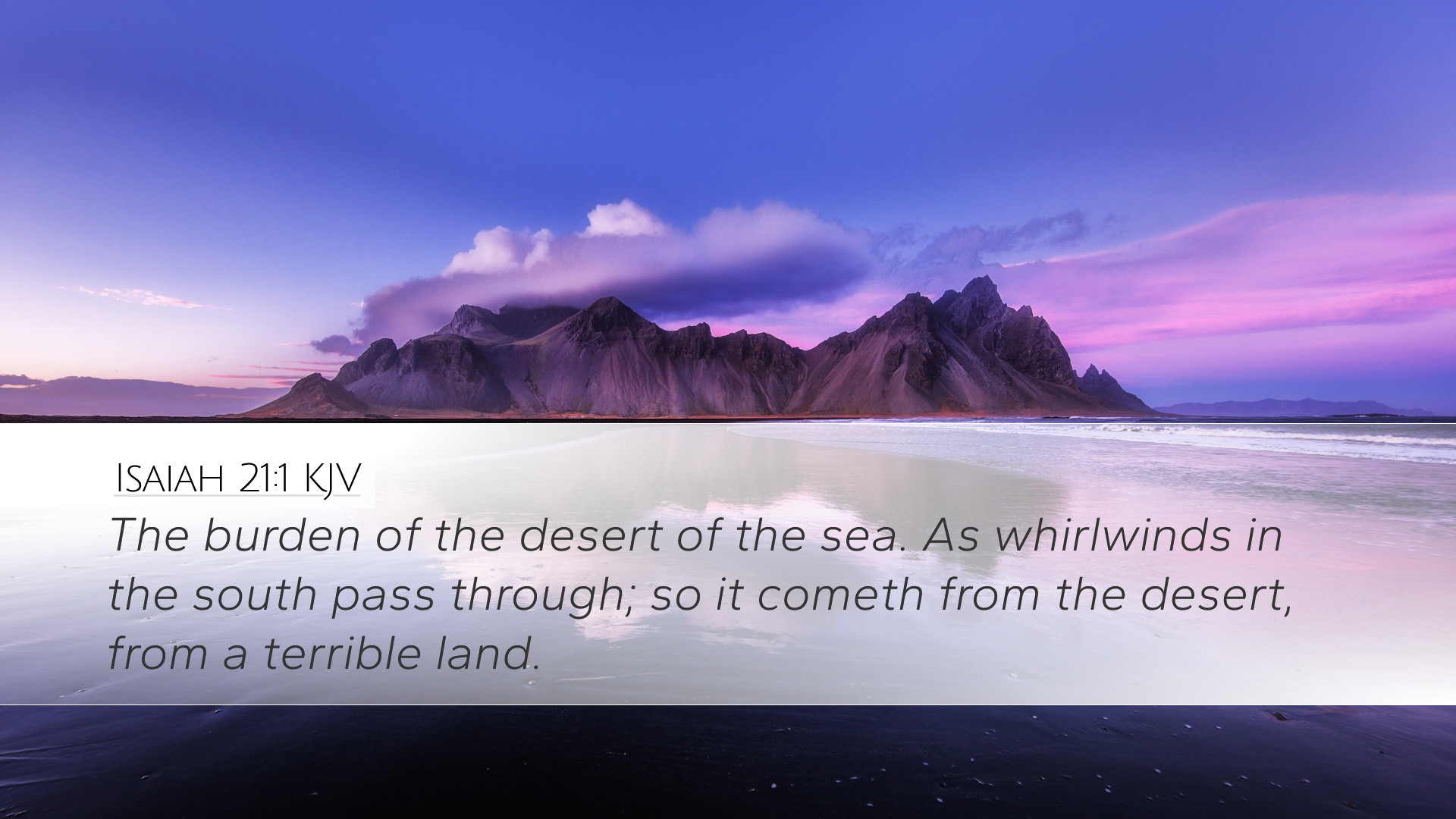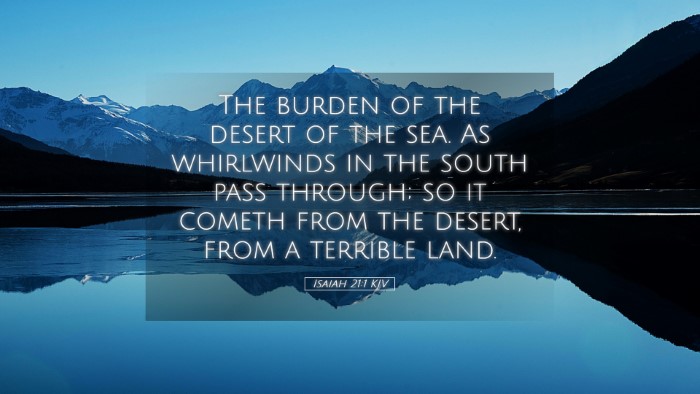Commentary on Isaiah 21:1
Isaiah 21:1 states: "The burden of the desert of the sea. As whirlwinds in the south pass through; so it cometh from the desert, from a terrible land." This verse opens up a prophecy regarding Babylon and other nations, indicating the profound judgments that are to come upon them.
Overview and Context
In examining this verse, it is crucial to understand the broader context of Isaiah's writings. The Book of Isaiah is filled with messages of both warning and hope, often oscillating between judgment for sin and the promise of redemption.
Exegesis and Insights
In this verse, the prophet Isaiah introduces the "burden" or oracle concerning Babylon. The term "burden" signifies not only the heavy message Isaiah is tasked with conveying but also the inevitable doom impending upon Babylon due to its sins.
As Matthew Henry notes, this prophecy relates to "the desert of the sea" — a metaphor that implies both desolation and grandeur. The phrase speaks to the idea of vastness and emptiness, as well as the remarkable contrast of the mighty Babylon being destined for desolation.
The Desert of the Sea
The imagery of "the desert of the sea" can be interpreted in various ways. Albert Barnes elaborates that this could reflect the location of Babylon, which, although it sits near the Euphrates River and was a powerful city, was ultimately surrounded by barren lands, embodying a contradiction between its splendor and its fate.
Whirlwinds and Terrible Land
The verse continues by describing the enigmatic approach of divine judgment through "whirlwinds in the south." Adam Clarke explains that these whirlwinds may symbolize the sudden and fierce nature of judgment that will come upon the nations — swift and unstoppable, just like a storm. The 'south' also evokes thoughts of the Arabian deserts, which could indicate where the people of the land or armies will be coming from.
Theological Reflections
This verse encapsulates several theological themes. The notion of a "burden" reveals the seriousness of God's message concerning sin and societal failure. From a pastoral perspective, it serves as a poignant reminder of the consequences faced when a nation turns away from divine principles.
Moreover, the dual imagery of desolation and tumult emphasizes God's sovereignty over nations. As pastors, theologians, and scholars reflect on this text, the recognition that God controls even the purported strength of nations is paramount. He can raise up and it comes to pass that He will also bring down.
The Burden of Prophecy
Henry articulates that the responsibility of bearing such a "burden" is indeed heavy. Prophets often faced ridicule or persecution for their messages, especially when contending against the prevailing norms and beliefs of their societies. Isaiah embodies this courageous task, heralding a truth that is difficult, yet essential for repentance and restoration.
Application for Modern Readers
- Awareness of Sin: This verse invites today's readers to examine their own lives and societies in light of God’s standards. It is a call to be vigilant against the societal trends that lead to judgment.
- God’s Sovereignty: Understanding God’s control over our circumstances fosters trust during tumultuous times. Believers can find solace in the fact that no situation is beyond His power.
- Faithfulness in Prophecy: The commitment of Isaiah to deliver God's difficult messages serves as a model for believers today, emphasizing the importance of being faithful to God’s calling, regardless of opposition.
Conclusion
In sum, Isaiah 21:1 serves not only as an ancient oracle directed towards Babylon but also as a timeless reminder of the reality of divine judgment and the profound responsibility that comes with being a messenger of God’s truth. Through various commentaries, insights into its meaning deepen and challenge readers from all walks of faith to consider the weight of God's word and the consequences that arise from turning away from Him.


